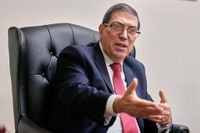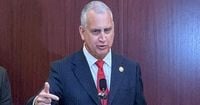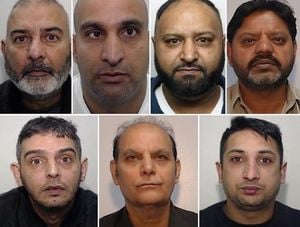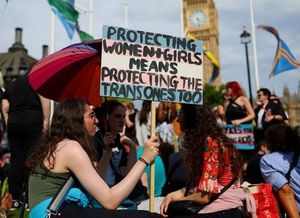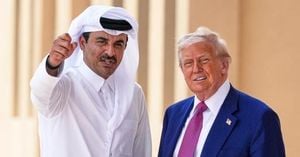In a week marked by escalating rhetoric and pointed accusations, relations between Cuba and the United States have reached a new fever pitch. Cuban Foreign Minister Bruno Rodríguez has publicly accused U.S. Secretary of State Marco Rubio of pursuing a "personal and corrupt" agenda that, in his view, betrays President Donald Trump’s stated mandate for peace in the region. According to Rodríguez, Rubio’s so-called "maximum pressure" campaign against Havana is not only out of step with Trump’s public stance but also responsible for recent U.S. escalations in the Caribbean and worsening tensions with Venezuela, as reported by The Associated Press and Breitbart News.
Rodríguez didn’t hold back in his criticism, telling AP in an interview on October 1, 2025, that "the current secretary of state was not born in Cuba, has never been to Cuba, and knows nothing about Cuba." He further charged that Rubio is advancing an "extremist" approach, sacrificing U.S. national interests for his own ends. "But there is a very personal and corrupt agenda that he is carrying out, which seems to be sacrificing the national interests of the U.S. in order to advance this very extremist approach," Rodríguez asserted.
For Cuba, the return of Donald Trump to the White House in January 2025 initially seemed to offer a glimmer of hope for a shift in the long-fraught relationship between the two countries. Rodríguez said, "Cuba saw a possibility of changing the longstanding antagonistic dynamic between the United States and the communist-run island when Trump returned to office." Yet, that optimism quickly faded as, according to Rodríguez, Rubio pushed for a renewed and aggressive "maximum pressure" campaign, rolling back the limited thaw that had occurred during the Obama and Biden administrations.
Indeed, the Trump administration wasted little time in restoring a host of restrictive economic sanctions against Cuba. On January 21, 2025, Cuba was re-listed as a state sponsor of terrorism—a designation that had been lifted in the final days of the Biden presidency. The administration also revoked temporary legal protections for approximately 300,000 Cubans, imposed visa restrictions on Cuban and foreign officials involved in Cuba’s controversial medical missions, and included Cuba among seven countries facing heightened travel restrictions. According to Breitbart News, these moves were justified by the U.S. as necessary to defend human rights and counter what it describes as the Cuban regime’s exploitation of its own people.
Rubio, for his part, has consistently taken a hard line on Cuba and other leftist governments in Latin America. In a July statement quoted by AP, he declared, "The U.S. will continue to stand for the human rights and fundamental freedoms of the people of Cuba, and make clear no illegitimate, dictatorial regimes are welcome in our hemisphere." Rubio’s background as the son of Cuban immigrants and his political base in Miami—home to both Cuban and Venezuelan diaspora communities—have shaped his outspoken opposition to communist regimes in the region.
Rodríguez, however, places the blame for the latest tensions squarely on the U.S. State Department, not the Trump White House. He described the department’s approach as "bipolar," particularly in its dealings with Venezuela. The recent deployment of U.S. warships off the Venezuelan coast and aggressive actions against suspected drug boats have further inflamed the situation. Rodríguez warned that speculation about a possible U.S. attempt to overthrow Venezuelan President Nicolás Maduro "could bring about unforeseeable and catastrophic consequences." When asked if Cuba would provide military support to Venezuela in the event of an invasion, Rodríguez demurred, saying, "We do not know what the future can bring." Still, he emphasized that Cuba acts in "full solidarity" with Caracas.
Despite the heated exchanges, Rodríguez noted that certain channels of cooperation between Cuba and the U.S. remain open, particularly in the areas of migration and counterterrorism. He even expressed optimism about the potential for a "serious and responsible dialogue" with the Trump administration, stating, "We are fully willing, as we have always been, to begin right now, today, a serious and responsible dialogue with the current U.S. administration." Yet, he also accused Rubio of orchestrating mass deportations of Cubans from the United States, targeting even those who entered legally and are awaiting benefits under the Cuban Adjustment Act.
The controversy has extended beyond traditional diplomacy to the realm of international health cooperation. This week, Cuba’s Deputy Health Minister Tania Margarita Cruz claimed she was denied a visa to attend a key Pan-American Health Organization (PAHO) meeting in Washington, DC, calling the move "discrimination" against Cuba. The U.S. State Department countered, telling Breitbart News that "no restrictions prevented representatives of the illegitimate Cuban regime who work in their Embassy from attending the PAHO meeting." The department argued that travel restrictions on Cuban officials are in the interest of U.S. national security and do not prevent Cuba from participating in such forums.
At the heart of this dispute lies a much larger controversy: the Cuban government’s export of medical professionals abroad, a program that has drawn fierce criticism from Washington. The U.S. government, under Trump, has made it a priority to condemn and curb what it calls Cuba’s "slave doctor system." According to the 2025 U.S. Trafficking in Persons report, there are 26,000 Cuban forced laborers—many of them medical professionals—working in over 55 countries. The report alleges that these workers are subject to coercive conditions, with much of their earnings seized by the Cuban government. A senior State Department official described efforts to diminish the influence and scope of abuse in the Cuban medical missions as a top priority in U.S. diplomacy, particularly with countries that have participated in the program.
Former participants in Cuba’s medical missions have testified to the harsh realities of the program. Ramona Matos, a Cuban doctor who served in Bolivia, recounted at a 2019 press conference, "Since we weren’t seeing any real patients, medication wise, we had to correlate the medication prescriptions to these patients who didn’t exist, so we had to destroy medicine to keep up...You had to burn them, disappear them, however you could get rid of it [the medicine]." Another doctor, Tatiana Carballo, recalled being told by Cuban authorities, "We are their property." According to Breitbart News, the U.S. has responded by restricting officials from third-party countries who have aided the Cuban medical scheme and has called out the Pan-American Health Organization for its alleged role in facilitating these arrangements.
For the Cuban government, however, these medical missions are framed as acts of solidarity and crucial sources of foreign currency. Rodríguez and other officials insist that, despite U.S. sanctions and criticism, Cuba will not abandon these programs. They continue to blame the U.S. embargo for the island’s ongoing blackouts, shortages, and inflation, while carefully avoiding direct criticism of Trump himself.
As the war of words continues, the fate of U.S.-Cuba relations—and the thousands of Cubans caught in the crossfire—remains deeply uncertain. For now, both sides appear entrenched, each accusing the other of aggression and bad faith, even as they leave the door open, however narrowly, for dialogue.
